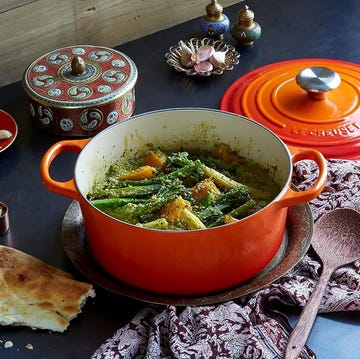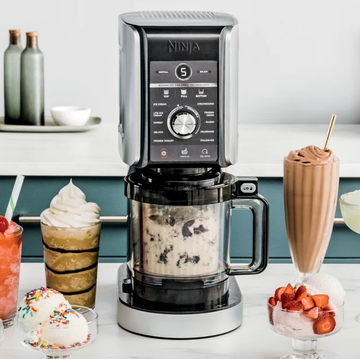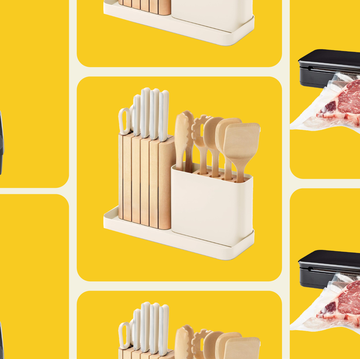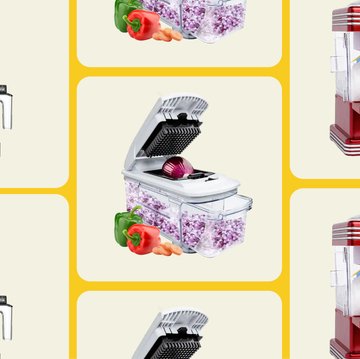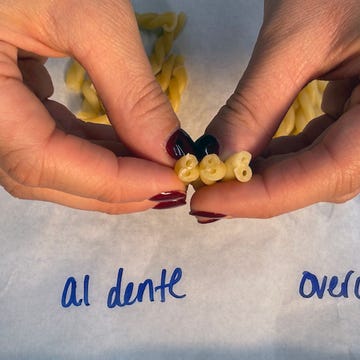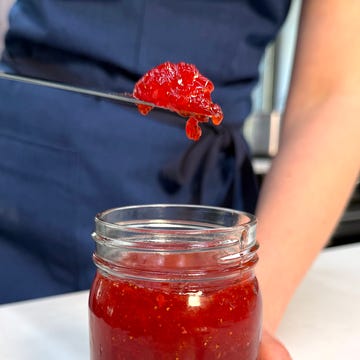You know that fragrant, savory aroma that fills the room when you start cooking dinner? More often than not, we have onions to thank. Onions, or any type of allium, are the simplest way to build the flavor foundation in a recipe.
They’re also incredibly versatile: you can slowly caramelize their natural sugars, you can pickle them in a punchy brine, and you can fry them into a crispy topping (a green bean casserole truly wouldn’t be the same without them).
Onions are also an extremely hardy vegetable. Civilizations have relied on onions as a food source for millennia, and part of an onion's appeal is its resiliency. When stored properly, certain varieties of onions can last for up to several months. But even with the most careful storage techniques, you can sometimes end up with a sprouted onion.
Sprouts can often indicate that a vegetable is past its prime. And in the case of some types of produce, like potatoes, it may even mean that it’s no longer safe to eat. But what do sprouts mean when it comes to onions? We consulted an expert to break down everything you need to know about sprouted onions—from safety concerns to the impact on flavor and how to prevent it from happening in the first place.
Why Do Onions Sprout?
Sprouting is a natural stage of an onion’s life cycle. They are considered a root vegetable in the culinary world, but botanically they’re technically a bulb. And just like other bulbs, onions are essentially the resting stage for a mature onion plant.
Sprouting starts when the onion is exposed to the right growing conditions. It doesn’t necessarily have to be sitting in soil for this to happen. When stored in warm, humid, and/or light-filled spots, onions are basically tricked into thinking it’s spring and start the sprouting process.
"Like a flower bulb, when the onion bulb is exposed to moisture, warm temperatures, and light, it gets the message that it’s time to grow," says Laura M. Ali, MS, RDN, a culinary nutritionist in Pittsburgh, Pennsylvania.
Are Sprouted Onions Safe To Eat?
Unlike potatoes, where the mature plant is toxic to humans, all parts of an onion are safe to eat. So you don’t need to worry when you see green sprouts poking out of your produce.
In fact, you don’t even need to remove them. Onion sprouts are not the same as scallions or green onions, but they taste pretty darn similar. So feel free to chop them up and use them in your recipes.
Sprouted onions are generally safe to eat, but there are still some important things to know. Onions require a particular set of nutrients in order to grow, and in a garden, they draw those nutrients out of the soil. "If an onion starts sprouting in your pantry, it doesn’t have access to those nutrients, so it pulls from what it has stored," Ali says. "It uses sugar for energy for growth, and it loses some of its antioxidant and polyphenol content as well."
An onion using its own sugar reserves to sprout will reduce the overall sugar content of the bulb. "Less sugar means sprouted onions often lose their sweet flavor and become more bitter," Ali adds. If you’re cooking the onions alongside plenty of other ingredients, it shouldn’t make a major difference. But we’d suggest steering away from raw preparations, since the onions will taste more astringent and unpleasant.
And it should go without saying that you should toss (or compost!) your sprouted onions if they’re mushy, leaking juice, or developing mold.
How Do You Prevent Onions From Sprouting?
The most obvious method to prevent your onions from sprouting is eating them soon after you buy them. But for those of us who buy onions in bulk, you can slow the sprouting with proper storage.
There are a few essential factors to consider when storing onions in your kitchen. "Less moisture and light and lower temperatures will keep them from sprouting," Ali says.
You want to avoid keeping your onions in areas with high moisture levels and temperatures. If you live in a more temperate climate with low humidity, you can store your onions in a dark room like a pantry or closet. But if it’s peak summer and you live in a more humid environment, you’re better off keeping them in the refrigerator.



